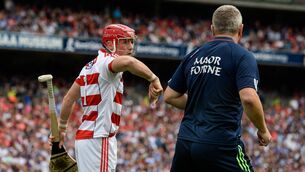Religion and the GAA in the 21st century

Do you think the Angelus at 6pm on the telly is a) a harmless minute of reflection; b) something that always give you pause for a quick prayer; or c) an irritating holdover from a time when the Church more or less ruled the country?
I begin there because I was interested to see comments












